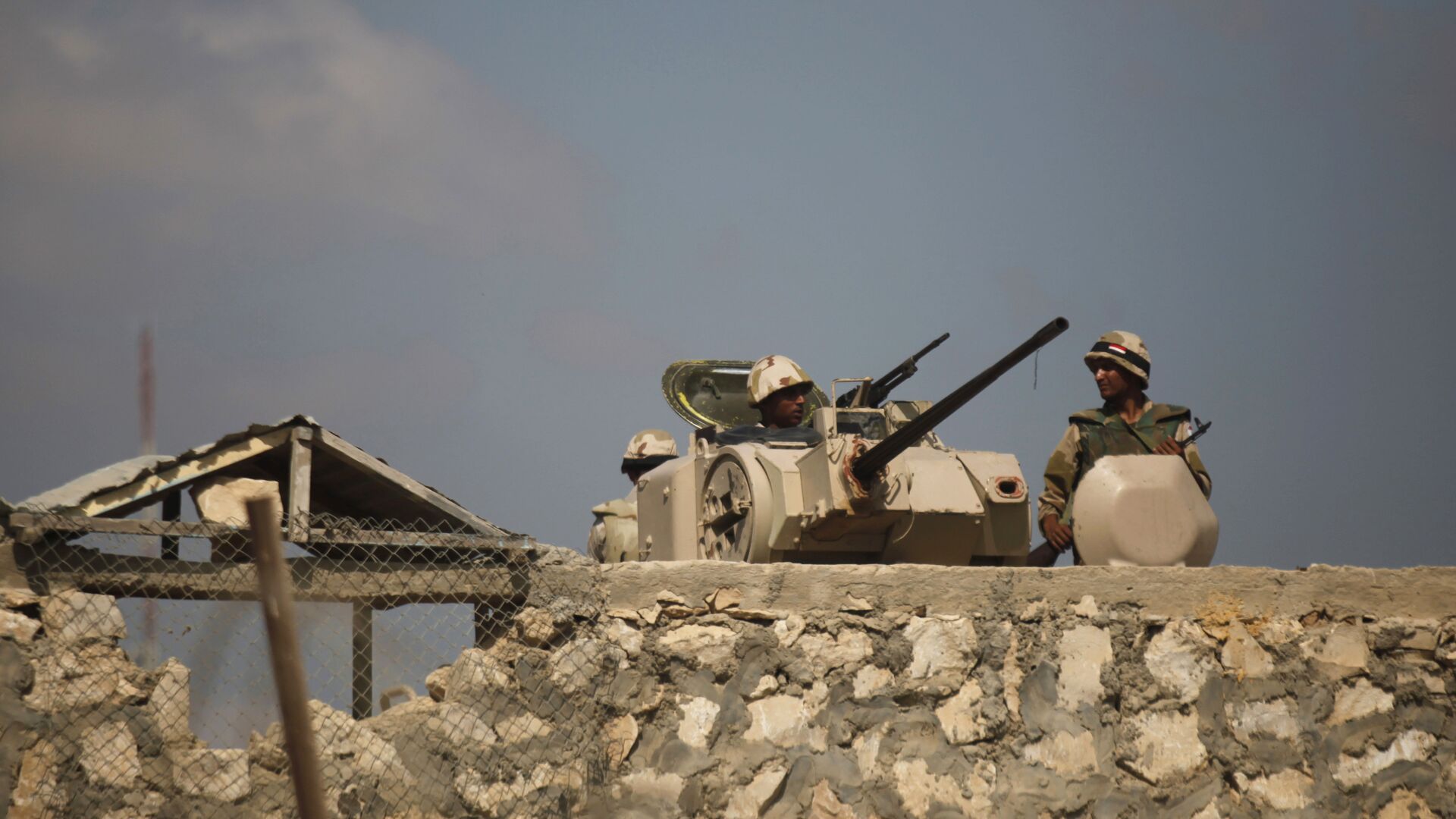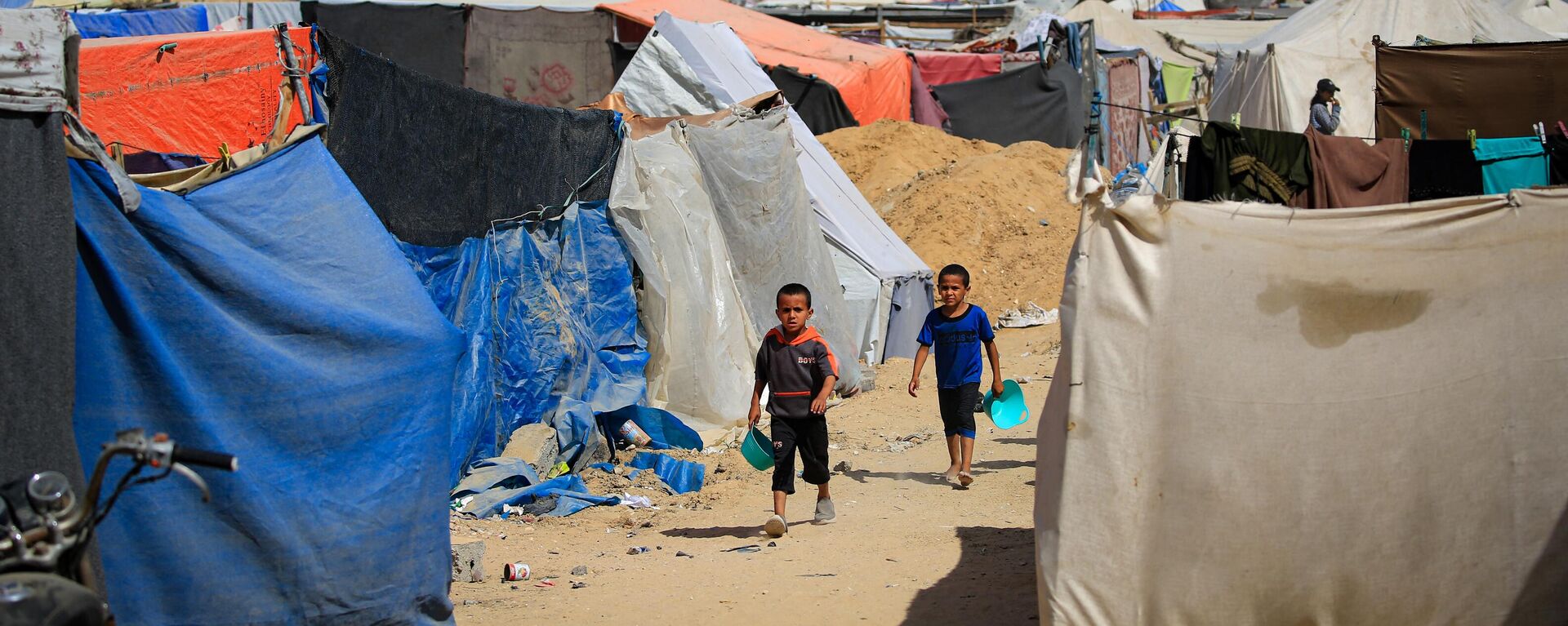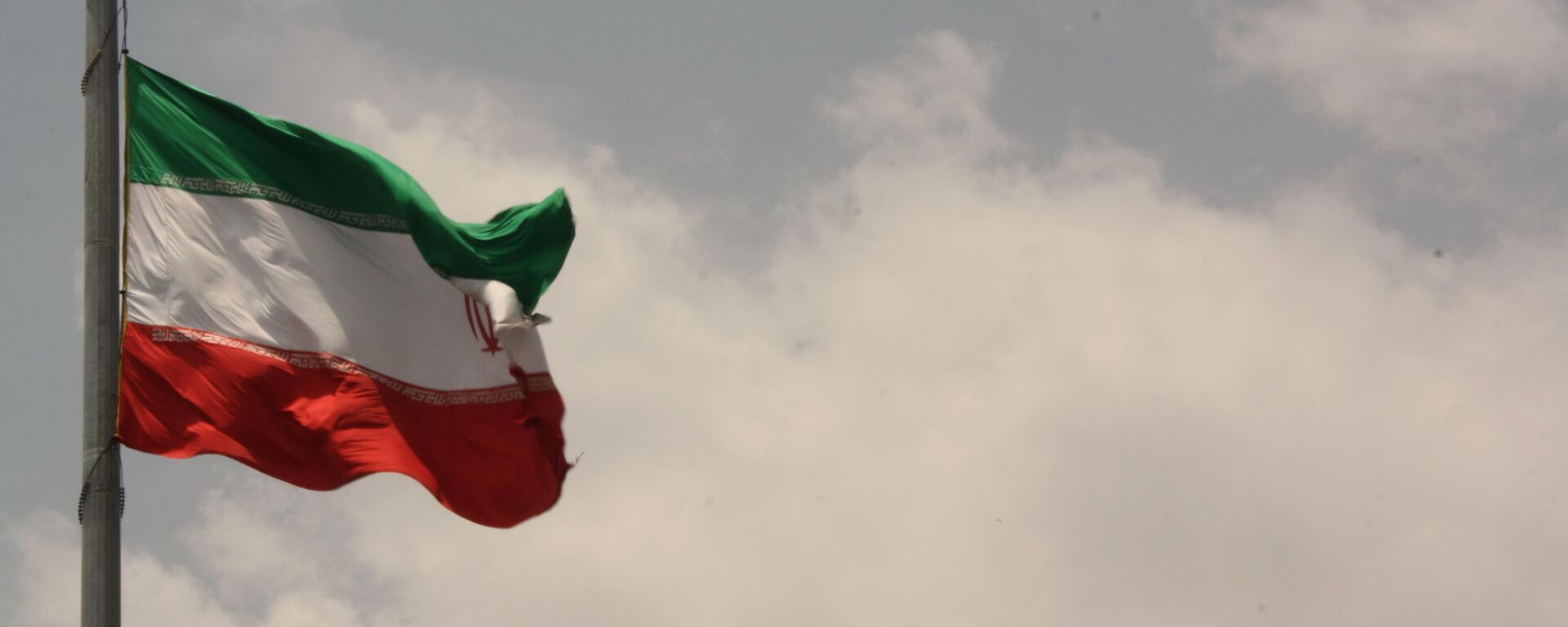Apple of Discord: What is Philadelphi Corridor and Why is it Linchpin of Egyptian-Israeli Tensions?
14:01 GMT 09.07.2024 (Updated: 12:01 GMT 10.07.2024)

© AP Photo / Hatem Moussa
Subscribe
The IDF occupied the Philadelphi Corridor separating Egypt and Gaza in May as part of its ongoing war in Gaza, prompting condemnation from Cairo, which dubbed the seizure a “dangerous escalation” that threatens the million plus Palestinians crowded into the border city of Rafah running along the corridor.
Israel has reportedly expressed readiness to withdraw its troops from the 14 km-long, 100 meter-wide Philadelphi Corridor frontier between Gaza and Egypt along an “agreed-upon schedule” as part of a new hostage-truce deal, so long as the IDF maintains the right to “take action” if it finds evidence of arms smuggling into the besieged Palestinian territory via the corridor.
The Philadelphi Corridor, which Israel sees as a key strategic point to prevent smuggling and the free movement of Palestinians in either direction, is a key bone of contention in Egyptian-Israeli relations. Here’s why:
Under the 2005 Egyptian-Israeli Philadelphi Accord, Egypt was authorized to deploy up to 750 border guards on its side of the buffer zone, which is known in Egypt as the Salah Al-Din Axis. The Palestinian Authority was able to deploy its security forces on the Gaza side of the border after the Israeli withdrawal from the area the same year, but itself lost control of Gaza to Hamas in 2007.
Egypt has been a key mediator in the on-again off-again series of ceasefire and hostage talks between Israel and Hamas, and has called the potential forced displacement of Gazans to Egypt a “red line.” In February, Egyptian State Information Service chief Diaa Rashwan warned that “any Israeli move to occupy the Philadelphi Corridor [would] lead to a serious threat to Egyptian-Israeli relations.” By occupying the corridor, Israel risked unsettling its “greatest neighbor,” and forcing Egypt to “defend its national security” and “the central cause of Palestine,” the official said.
After Israel moved ahead with the occupation anyway, Egyptian lawmakers warned that the move undermined the 1979 Egyptian-Israeli peace deal, which delimited the current borders between Egypt and Gaza along the Salah Al-Din Axis, and restricted the number of troops either side could deploy in the demilitarized border region.
The Washington Institute for Near East Policy, an influential US pro-Israeli think tank, warned recently that Tel Aviv’s takeover of the Philadelphi Corridor was one of a “growing list of bilateral irritants” threatening to unravel US foreign policy objectives in the region – namely keeping tensions cool to prevent Tel Aviv and Washington from having to face off against yet another powerful military, economic and political regional juggernaut – namely Egypt.
Egypt doesn’t buy the IDF’s rationale for occupying the Philadelphi Corridor, with an official stating in January that Cairo had worked unilaterally over the years to dismantle well over 1,500 clandestine underground tunnels.



